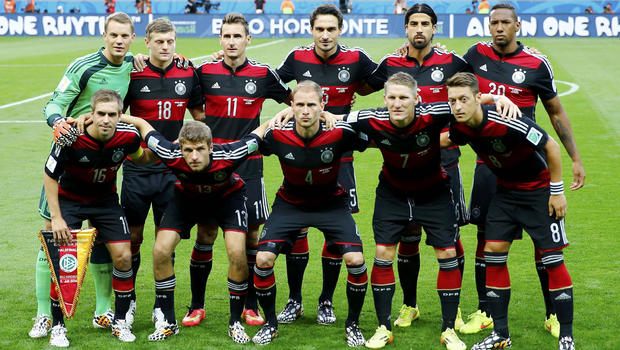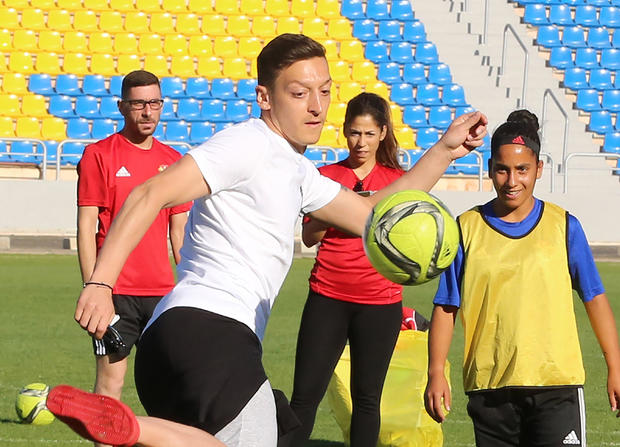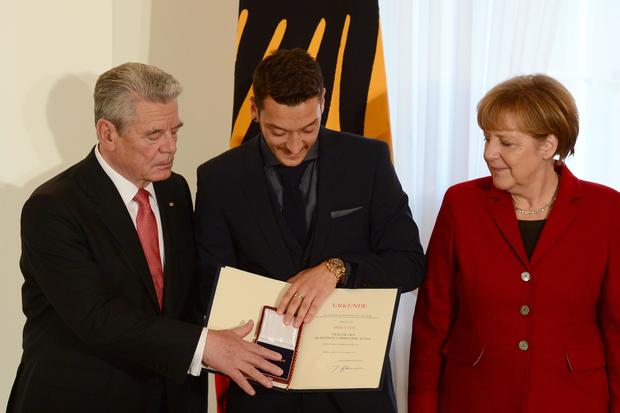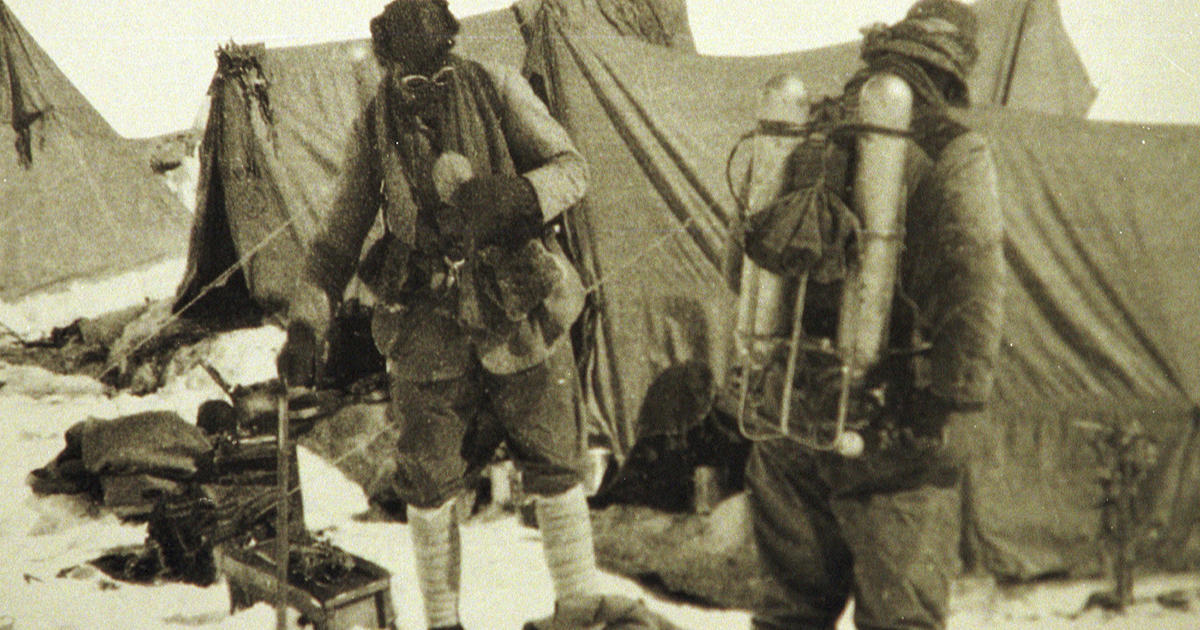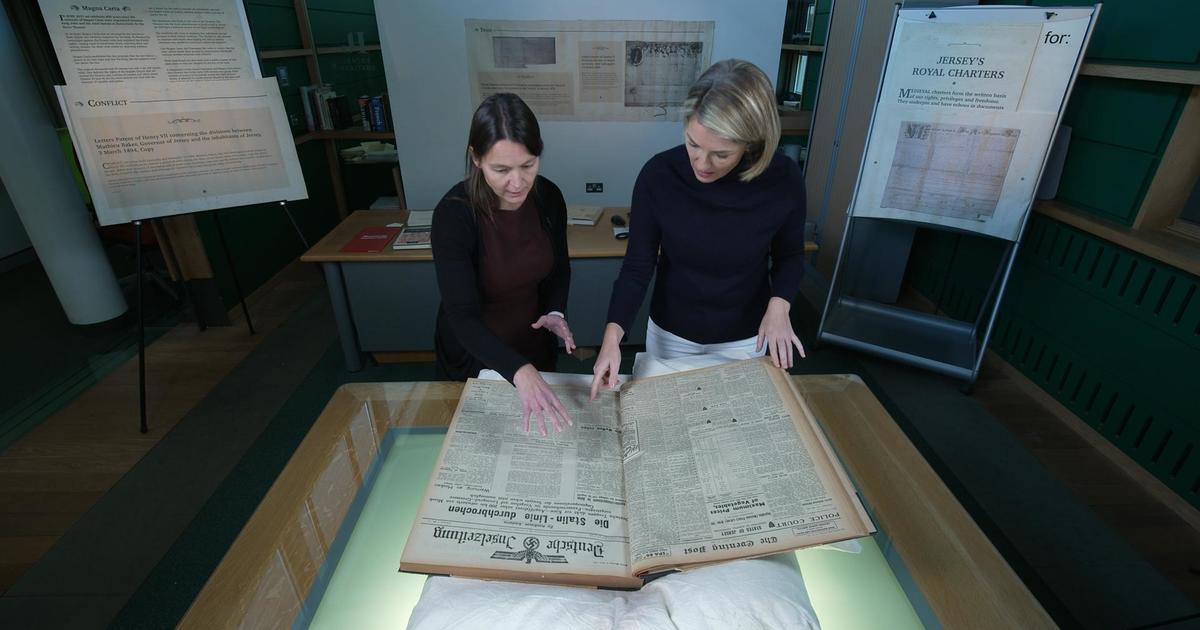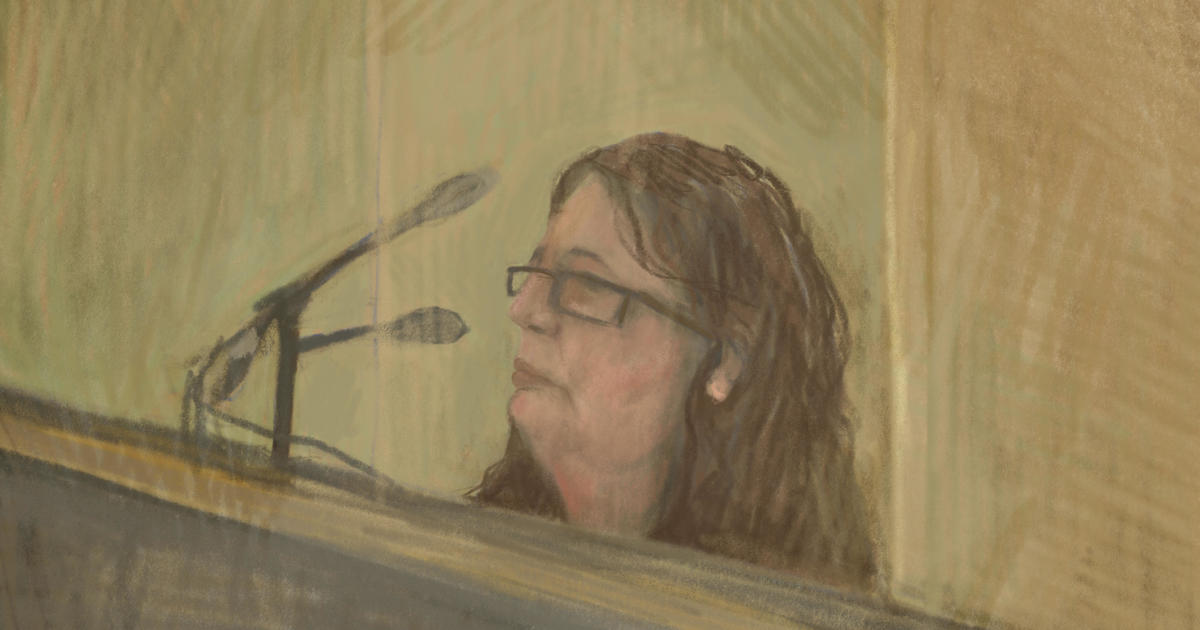Mesut Özil quits German national team over alleged racism: "I am German when we win, but I am an immigrant when we lose"
German soccer star Mesut Özil has represented his country in three World Cups, even leading Germany to its first World Cup victory in more than two decades in 2014 as their leading scorer with an impressive eight goals. Yet the star attacking midfielder -- who became the most expensive German player of all time when he was acquired by Arsenal in 2013 for £42.5 million -- just quit Germany's national team in a series of explosive tweets, alleging racism on the part of the German media and the head of the German football association, over a photo he took with Turkish President Tayyip Erdoğan in London in May.
"Like many people, my ancestry traces back to more than one country," Özil, who was born and raised in Germany, wrote a statement on Twitter. "Whilst I grew up in Germany, my family background has its roots firmly based in Turkey."
Özil's grandfather moved from Turkey to Germany in the 1970s, seeking work as part of the formal guest worker, or Gastarbeiter, program, popular in parts of Europe at the time. The family settled in Gelsenkirchen, where the soccer star was born in 1988. So, while Özil spent his entire childhood in Germany's industrial Ruhr region, like many children of immigrant families, he feels a strong emotional pull toward the country of his ethnic roots as well.
"During my childhood, my mother taught me to always be respectful and to never forget where I came from," Özil said on Twitter Sunday. "I have two hearts, one German and one Turkish."
Because of his family's ties to Turkey, when Özil encountered Turkish President Erdoğan at a London charity event in May, out of respect, the soccer star says he didn't hesitate to take pictures shaking hands with the controversial leader, whose crackdown on opponents has been widely denounced by human rights groups and democratic governments like Germany's.
At the time of the photo, Reinhard Grindel, the president of DFB, the German football association, criticized Özil for posing with Erdoğan, stating "football and the DFB stand for values that Mr. Erdoğan does not respect. That's why it's not acceptable that our national team players are exploited for his election campaign."
Özil, however, argued that the photo op was entirely apolitical.
"I'm aware that the picture of us caused a huge response in the German media," Özil wrote on Twitter Sunday, "[but] the picture we took had no political intentions... For me, having a picture with President Erdoğan wasn't about politics or elections, it was about me respecting the highest office of my family's country... Whether it had been the Turkish or the German president, my actions would've been no different."
Özil goes on to say that the two spoke only about soccer, since President Erdoğan also played the sport in his youth. However, right-wing German media is portraying the interaction as something entirely different -- the reason for Germany's poor performance in the 2018 World Cup.
"If a newspaper or pundit finds fault in a game I play in, then I can accept this – I'm not a perfect footballer and this often motivates me to work and train harder," Özil writes. "But what I can't accept are German media outlets repeatedly blaming my dual-heritage and a simple picture for a bad World Cup on behalf of an entire squad. Certain German newspapers are using my background and photo with President Erdoğan as right-wing propaganda to further their political cause... They didn't criticise my performances, they didn't criticise the team's performances, they just criticized my Turkish ancestry... This crosses a personal line that should never be crossed, as newspapers try to turn the nation of Germany against me."
Özil goes on to state that while Adidas, Beats and BigShoe have stuck by him during this difficult time, other partners and sponsors have dropped him -- even removing his likeness from World Cup ads -- over fear of the right-wing German media. He also alleges that German politicians and prominent citizens have made racist remarks about his Turkish heritage amidst the backlash over the photo.
"I don't want to even discuss the hate mail, threatening phone calls and comments on social media that my family and I have received," Özil continues. "They all represent a Germany of the past, a Germany not open to new cultures, and a German that I am not proud of... It is with a heavy heart and after much consideration that because of recent events, I will no longer be playing for Germany at international level whilst I have this feeling of racism and disrespect. I used to wear the German shirt with such pride and excitement, but now I don't."
The DFB, for its part, has now issued a statement denying Özil's claims of racism and putting the onus for Germany's roster change squarely on the shoulders of its former star: "We regret that Mesut Ozil had the feeling that he wasn't protected enough against racist slogans – like Jerome Boateng once was. But it was important that Mesut Ozil gave answers to the topic, like Ilkay Gundogan did, regardless of the result at the World Cup in Russia. At the DFB, we win and lose together, everyone as a team. The DFB would have been happy if Mesut Ozil remained a part of the team. He decided to not do so."
Meanwhile, social media reaction has been swift, with several of the world's most prominent soccer stars turning to Twitter to tweet their support for Özil's decision.
Had Germany gone on to win the World Cup this year, as they did in 2014, none of this might have transpired. Mesut Ozil had, after all, been named German Player of the Year on five occasions, and he might have been heralded for his play yet again. As it turned out, however, Germany was shockingly and embarrassingly shut out, scoreless, in the group round by Mexico and then South Korea, setting the stage for a sort of scapegoatism which reflects a larger world grappling with issues of immigration and national identity.
"In the eyes of Grindel and his supporters, I am German when we win, but I am an immigrant when we lose," Özil said on Sunday.
And this isn't the first controversy to come out of the 2018 World Cup with respect to players' ethnicity vs. their nationality.
Last week, South African-born "Daily Show" comedian Trevor Noah took heat for proclaiming that the World Cup, which France won on July 15, was actually won by Africa because of the large percentage of players on the French roster of African descent.
"Yes. Yes. Africa won the World Cup! Africa won the World Cup!" Noah joked on his July 17 episode. "I get it. I get it. They have to say it's the French team, but look at those guys -- you don't get that tan by hanging out in the south of France," Noah said.
France's ambassador to the U.S. then fired back in a letter that "the rich and various backgrounds of these players is a reflection of France's diversity," and said Noah's joke was akin to an "argument of the white supremacist."
"I love those players," Noah shot back. "I don't take their Frenchness away, but I also don't think you need to take their Africanness away."
It's a global debate that shows no signs of abating anytime soon. And until it does, issues of national identity are likely to continue bleeding over onto the sports field, where the penalties may be far graver than a simple yellow card or a free kick.
